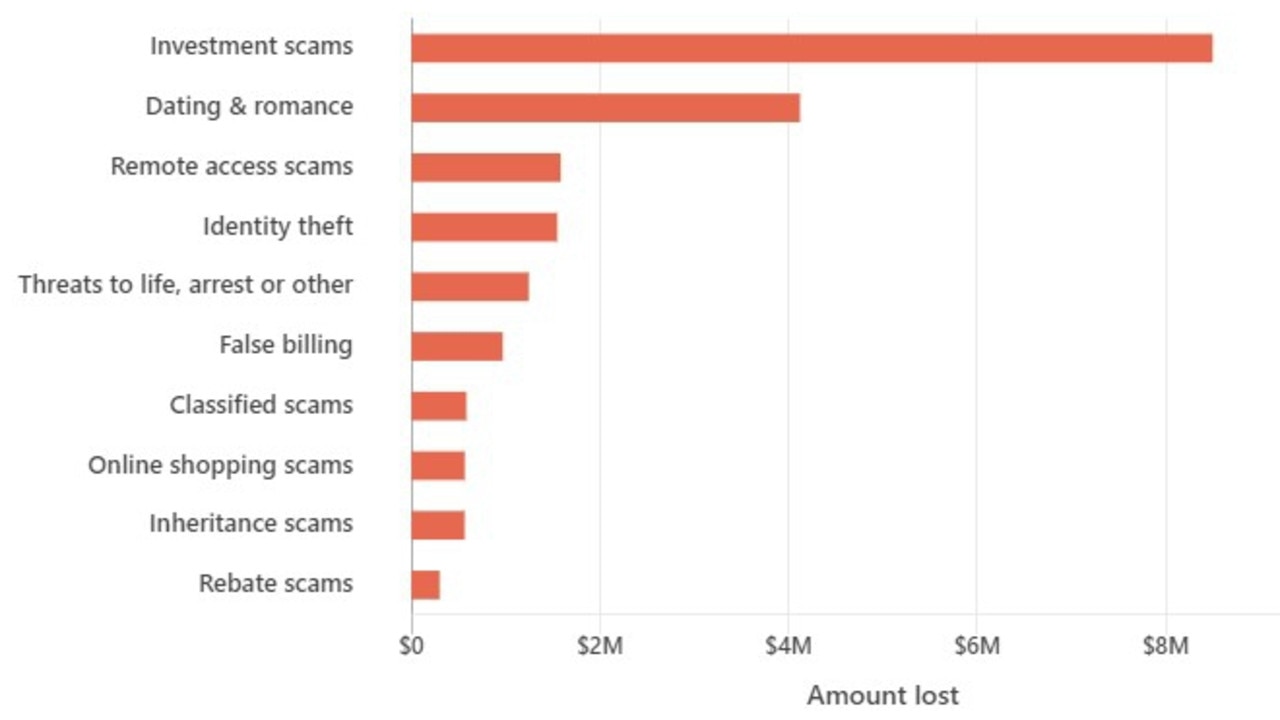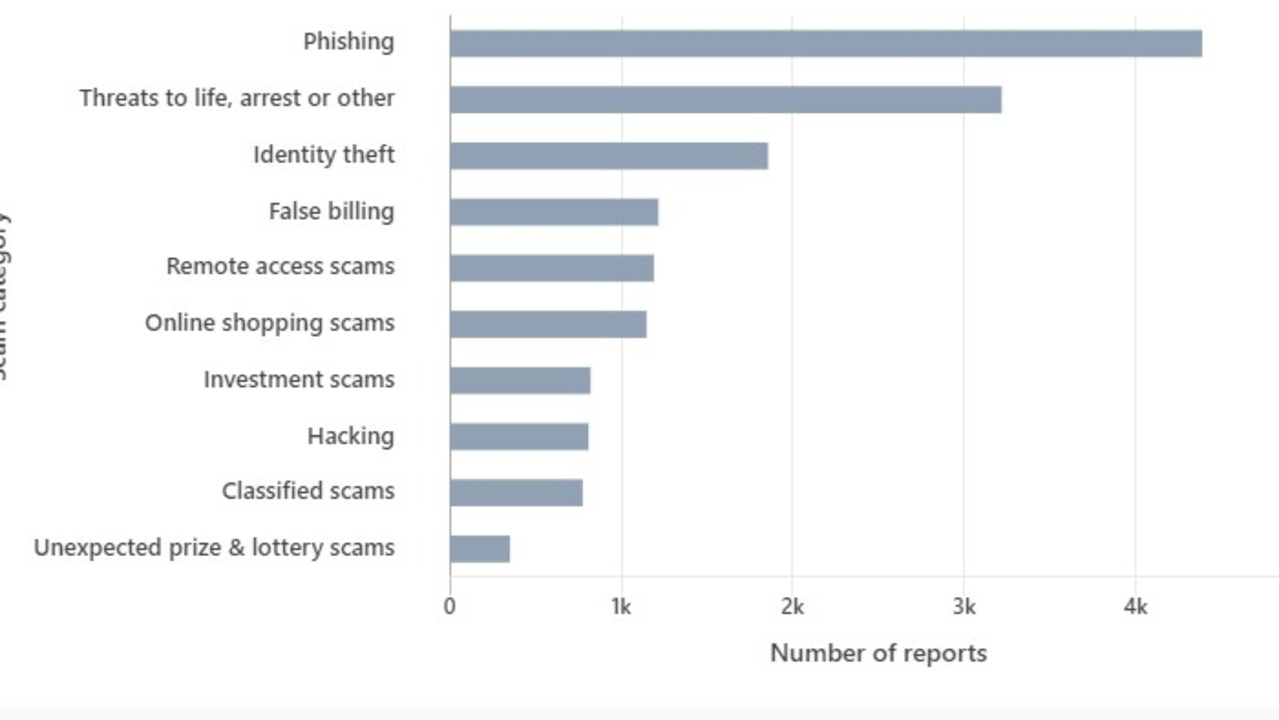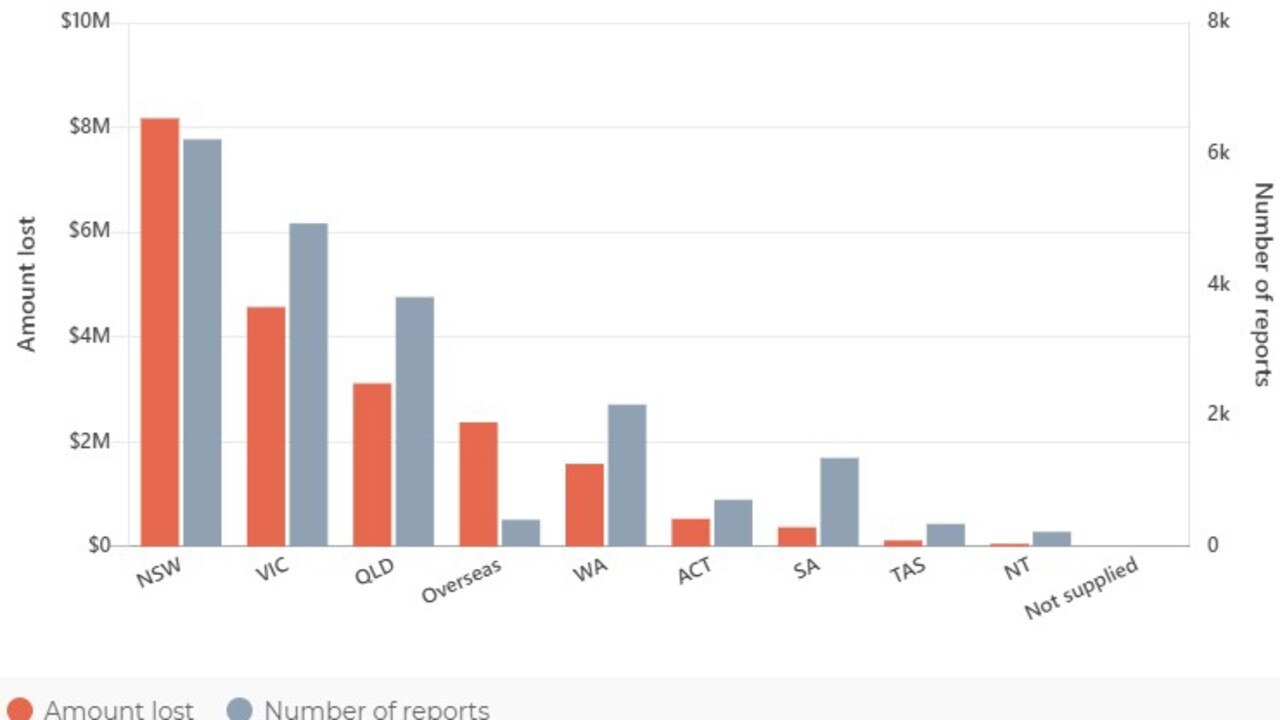Investment scams cost Aussies $8m in February while ID theft surges
Scams cost Australians $20m last month, but a rise in a particular type has cyber experts worried.
Identity theft is the fastest growing type of scam in Australia after the nation was hoodwinked a total of almost $21m by criminals last month.
A monthly report by the Australian Competition and Consumer Commission has revealed Australians lost $1.5m to ID theft in February, while investment scams topped the list at $8.4 million. A total of $20.8m was lost by Australians to scammers.
However, the surge in the number of reports of ID theft has cyber experts on high alert after 1856 cases in February represented a whopping 384 per cent increase on the month before.
Overall, the number of scams (attempts to steal victims’ money or credentials) in February was 55 per cent higher than the same month last year.

Crispin Kerr, vice-president of global cyber security firm Proofpoint’s Australia and New Zealand region, said criminals were exploiting online vulnerability in the recovery from the COVID-19 pandemic.
“One of the most concerning statistics is the sharp rise in identity theft, up 384 per cent in just one month,” Mr Kerr said.
“This suggests cybercriminals are continuing to leverage social engineering and fail-safe tactics such as phishing to impersonate individuals and organisations with the goal to steal credentials and money.”
Other alarming scam increases included those relating to health and medical products, up 44 per cent from January.
Proofpoint data suggests that aligned with the beginning of Australia’s COVID-19 vaccine rollout in February.
Reports of ransomware and malware also increased by 52 per cent compared with the previous month.

In terms of total money lost in February, the ACCC reports dating and romance scams ($4.1m) were closely behind investment.
Remote access ($1.6m), threats to life or of arrest ($1.2m) and false billing ($968,000) were also expensive for Australians.
Although criminals are using online means to exploit Australians, scams over the phone were most costly in February with $7.6m lost.
Social networking ($3.5m), email and internet ($2.7m each) and in-person scams ($2.1m) were also profitable for criminals.
The most vulnerable age group was 45 to 54, losing $5.9m across 2692 reports in February.
NSW was the most-targeted state by scammers.

Mr Kerr warned Australians scams would likely continue to rise as the vaccine rollout progressed.
“Cybercriminals are continuing to play into victims’ fears around the pandemic, using phishing techniques that include spoofing well-known organisations like World Health Organisation and DHL to steal personal information and credentials from victims,” he said.
“As the Australian vaccine rollout gets under way, we are likely to see a further increase in these types of scams play out.
“We advise Australians to be vigilant and exercise caution when they receive unsolicited communications in any form.
“Never click on links or open attachments, be careful not to disclose sensitive or personal information, and never share passwords with others.”



